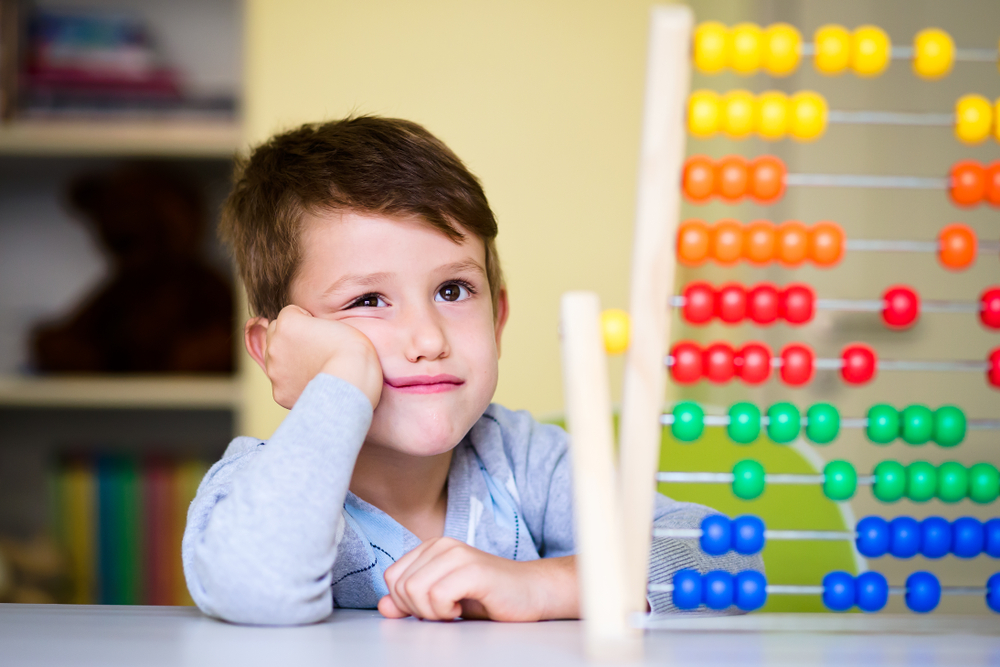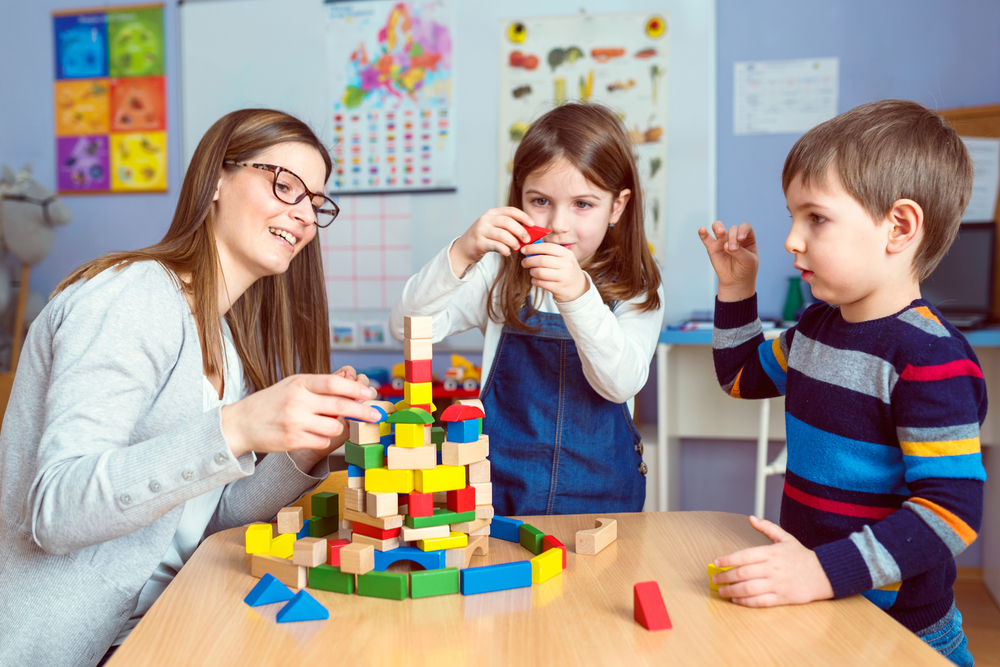Normal Thanksgiving Worksheets Activities With Answers for Ages 3-7
6 filtered results
-
From - To
Discover our engaging Thanksgiving worksheets designed specifically for children aged 3-7! Perfect for incorporating the festive spirit into learning, these activities feature brain teasers, coloring pages, and fun puzzles. Each worksheet aims to enhance critical thinking and fine motor skills while celebrating the Thanksgiving holiday. With easy-to-understand instructions and bright, appealing illustrations, kids will enjoy exploring themes of gratitude and community. Plus, each activity includes answers for parents and teachers to facilitate seamless learning experiences. Make Thanksgiving both fun and educational with our collection of normal Thanksgiving worksheets, ensuring a memorable holiday for your young learners!
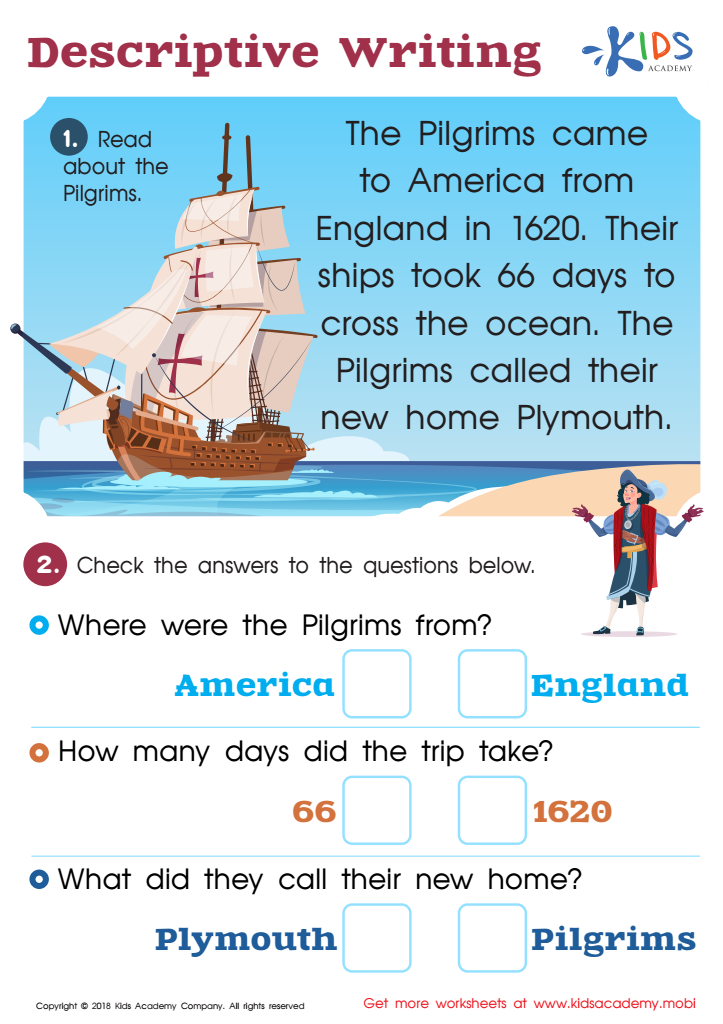

Descriptive Writing Worksheet: Part 1
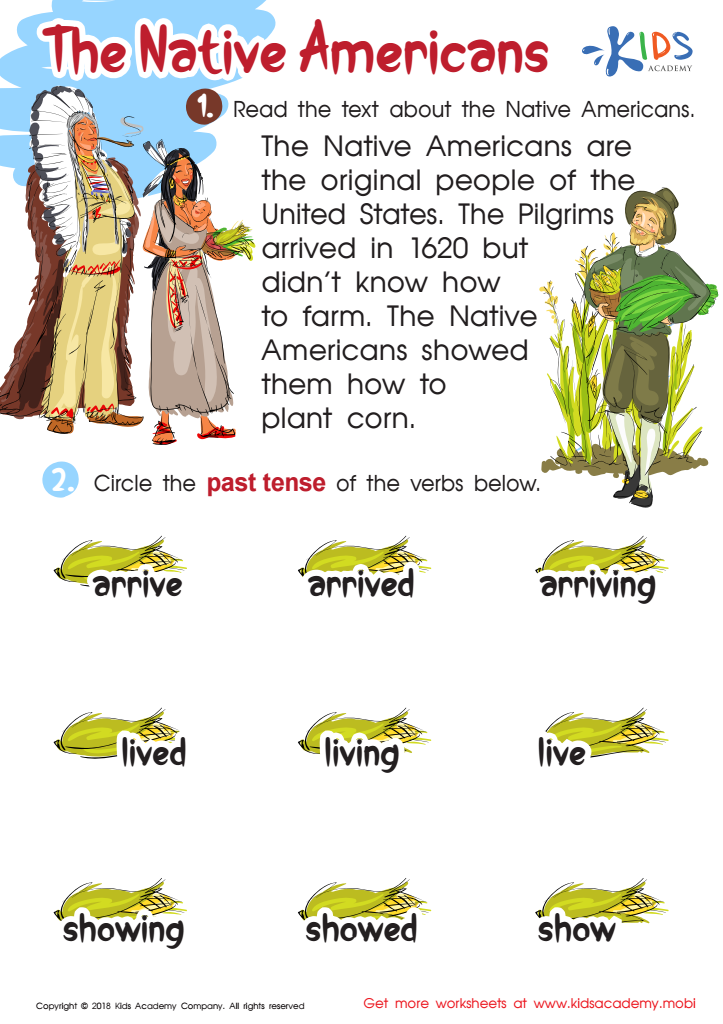

The Native Americans Worksheet
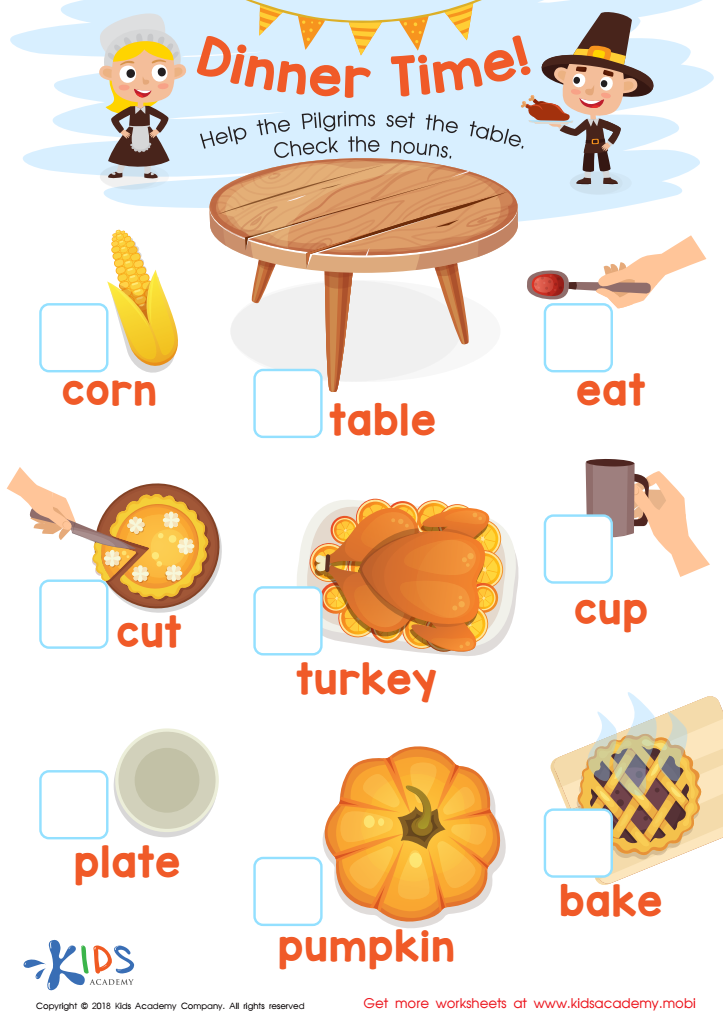

Dinner Time! Worksheet
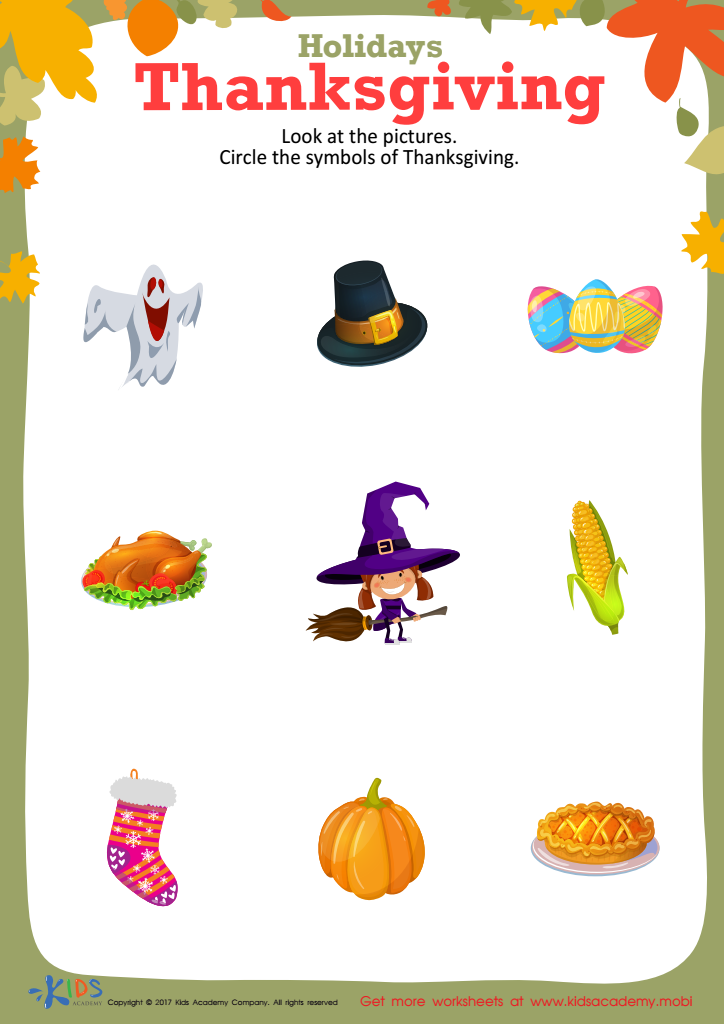

Thanksgiving Holiday Printable
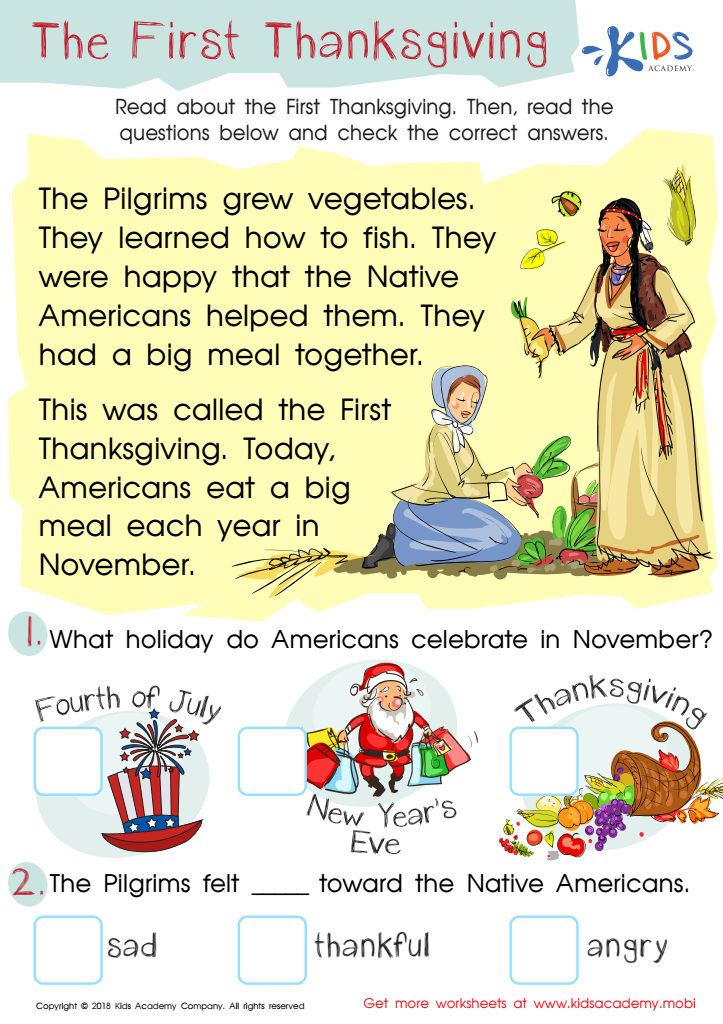

Assessment: First Thanksgiving Worksheet
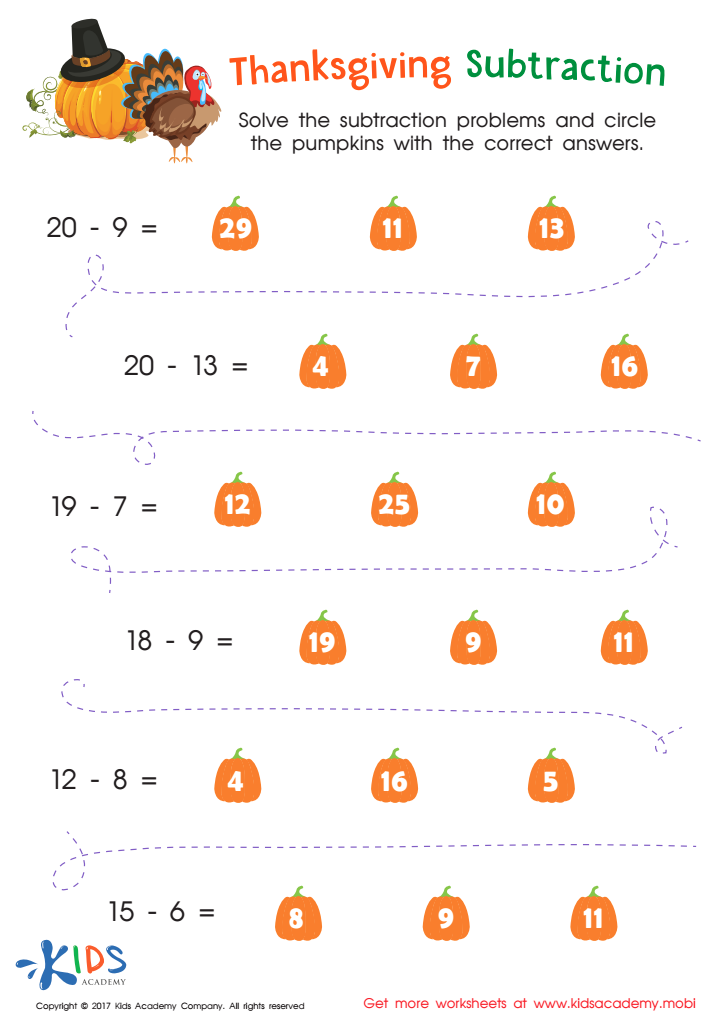

Thanksgiving Subtraction Substraction Worksheet
Thanksgiving is a wonderful time to engage young children in meaningful activities that foster gratitude, sharing, and community. For parents and teachers, organizing age-appropriate Thanksgiving activities for children aged 3-7 is essential for several reasons.
Firstly, these activities provide an opportunity for children to learn about the significance of Thanksgiving, helping them understand the concepts of gratitude, kindness, and sharing with others. Crafts, storytelling, and cooking experiences can facilitate discussions about what it means to be thankful and why it’s important to appreciate what we have.
Additionally, Thanksgiving activities enhance social skills. Children often work in groups or pairs, allowing them to develop teamwork, communication, and collaboration skills. This not only builds relationships with peers but also fosters a sense of belonging within the community.
Moreover, engaging in hands-on activities boosts cognitive development. Young children learn best through play and exploration, and Thanksgiving-themed activities can promote creativity, critical thinking, and fine motor skills through arts and crafts or cooking.
Lastly, celebrating Thanksgiving together strengthens family and school bonds. It creates lasting memories and traditions, making children feel loved and connected to their caregivers and educators, which is foundational for their overall emotional and social well-being.

 Assign to My Students
Assign to My Students


